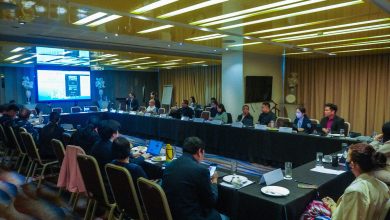In accordance with the Tobacco Regulation Act of 2003 or Republic Act No. 9211, all forms of tobacco advertising in mass media, except those placed inside the premises of point-of-sale retail establishments, took effect July 1, 2008.
As reported in the Philippine Daily Inquirer, the Framework Convention on Tobacco Control Alliance Philippines (FCAP), a non-government coalition of doctors, medical professionals and socio-civic groups thinks the total cigarette ad ban is timely in its efforts to curb the fast-rising number of Filipino youths addicted to smoking. FCAP board member and advertising executive Roberto Del Rosario states the total advertising ban ‘is imperative to protect millions of Filipinos,’ already estimated at 4 million young smokers.
The World Health Organization (WHO) reports between 80-100 thousand youths are initiated into the smoking habit every day. Fifty percent of first-time smokers are Asian youths tempted by attractive cigarette advertising. East Asia and the Pacific regions register the highest number where two-thirds of the male population are cigarette smokers. The top ten advertisers in Cambodia, Indonesia, Malaysia, Myanmar and the Philippines contain cigarette companies.
The Western Pacific region smokes one-third of all cigarettes worldwide. One-fourth of its youth population could die from smoking. As Del Rosario says, “it is sad that the tobacco industry is looking for replacement smokers for those who have already died.”
In a related incident, FACP executive director Dr. Maricar Limpin filed a complaint with the Inter-Agency Committee Tobacco (IAC-T) headed by the Department of Trade and Industry last April on the advertisement for Fortune Tobacco’s Hope cigarettes on display banners outside 7-11 outlets. According to the FACP, this is a clear violation of the prohibition of outdoor tobacco advertising that took effect July 2007. Section 22 or Republic Act No. 9211 or Tobacco Regulation Act of 2003 prohibits all outdoor tobacco advertising covering cinema, television, cable television and radio. FACP sought action from the IAC-T on “the new form of cigarette advertising in the form of X-banners” and sent the Philippine Seven Corporation president Jose Victor Paterno a letter demanding the company to comply with law.








